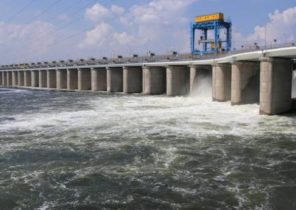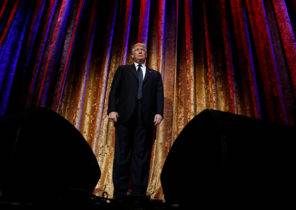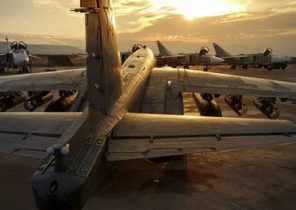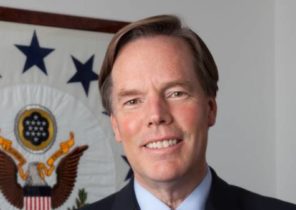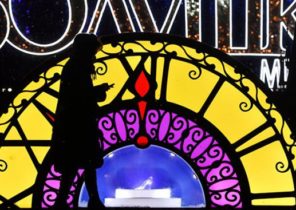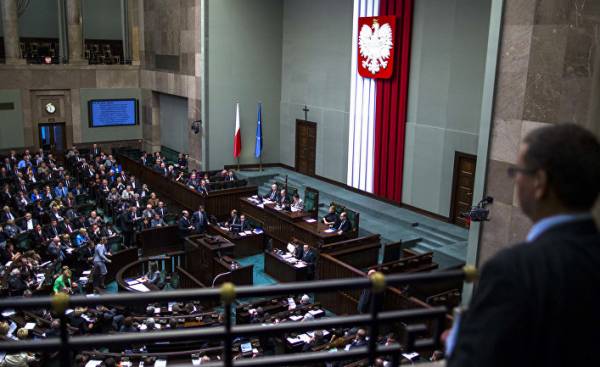
Modern Russia seems to be resurgent conservative Empire. In the Polish right-wing circles unfolding argument, which should be given particular attention: Russian imperialism or, rather, conservatism.
Some commentators see in the first place the danger posed to Poland and the world the restoration of the old Empire, others with hope and admiration behold the re-establishment of Russian conservatism. First, fearing a resurgent Russia, looking for help from the Western allies, while the latter believe that Russia will become a counterweight to the threatening Poland the liberal West.
The first period dominates in the broad “Patriotic camp” to a greater or lesser extent associated with the party “law and Justice” (PiS) and such mass media as Gazeta Polska or the portal Fronda.pl. The second is present in the national-Patriotic circles. Journalism of this trend can be found in the publication Najwyższy Czas portal Konserwatyzm.pl. Both sides sometimes fall into an apocalyptic tone.
Some see in Russia the Antichrist, the nihilist, who cynically use religion to regain an Imperial position. The second associated with her chance to stop the March of atheistic globalism. In the Polish right-wing circles dominated the first, traditionally anti-Russian approach. Recently, however, began to gain popularity opposite the conservative Pro-Russian approach.
In my opinion, both sides of the argument are wrong. In the framework of anti-Russian approach, it is believed obvious that Russia is a resurgent Empire and Pro version offers a considered axiom her Christian and conservative. However, in modern Russia there is no Imperial or the more conservative traits. From the great and the terrible past of the masses only strong post-Imperial and anti-Western complexes which are cynical in its policy elite. Moscow creates a conservative and Imperial phantoms, but real action both on the domestic and on the international stage (contrary to the fears or the hopes of Western observers) confirm that she broke up with the former principles of the Russian policy. Russia is becoming a normal national state, which, perhaps for the first time in its history, does not carry the world no threats of apocalyptic or Messianic expectations.
The last hope of conservatism
An example of the first type of perception of Russia in the right circles can serve Andrzej Nowak (Andrzej Nowak) — an outstanding successor of original Polish school of Sovietology, its key thesis about the continuity between tsarist and Soviet imperialism. As short as possible illustrates this idea in the name of multi-volume pre-war work by Jan Kucherevskogo (Jan Kucharzewski) “From tsarist white to red”.
Representative of the second type of thinking takes a colleague of Professor Nowak of the Jagiellonian University — one of the leading Polish researchers of Russian literature Anna Rasini (Anna Raźny). If the starting point in thinking Novak is a idea of the stability of the Russian Empire, which uses different ideologies as tools, Resiny begins with the fact of the reference of Russia to God, radically transformed Imperial legacy.
Professor Rasini believes that in Russia there is a real return to tradition and the public and private sector. The researcher enthusiastically talks about the recent Russian legislative changes that promote traditional values government protects Christianity, oppose homosexual propaganda and creates projects for the fight against abortion.
Russia has become the mouthpiece of conservative and Christian ideas also in the international arena. Russian conservatism, according to Rasini is not an instrument of imperialism, and a sincere protest against the corrupt liberal world and try to create for him an alternative. Powerful Russian state is able to actively fight against liberal globalism. Thus, it appears that no values are Empire and Empire values. Inspired by the values of the new imperialism can no longer resort to violence, so Russia is returning to the Christian tradition, in fact, breaks with his sinister heritage.
Anna Resiny notes that commentators often overlook the “ethical component” of the idea of Empire, which promote new enthusiasts. She discovers it even in the works of Alexander Dugin and calls him closely associated with Christianity and the Russian tradition by the author, which is the successor of the thoughts of Fyodor Dostoyevsky, Nikolai Berdyaev and Alexander Solzhenitsyn. Impetus for the restoration of the Russian Empire, is he not an empty lust for power, and ethical disagreement with the Western way of life. So Dugin is not the enemy, and the defender of true European values. But, as stressed Rasiny, “not all researchers pay attention to the ethical aspect of the concept, although it is just as important as the aspect of Imperial”.
Russia suddenly turned into a Motherland of world conservatism. However, as noted with regret the researcher, the Polish right-wing circles do not want to accept this idea. Our conservatives are trapped in traditional Polish Russophobia. Resiny writes: “Russia has dared not only to challenge, but to reject the ideological Foundation of the Empire: the ideology of political correctness and its associated gender ideology. She spoke out against atheism and triumphantly returned to Christianity. Meanwhile, any attempt to call Russia catecholam, that is the one that keeps the workings of the devil in the modern world, is at least political and civilizational heresy, madness that must be curbed”.
The essence of modern Russia for Anna Rasini is the conservatism and imperialism, or rather what remained of it after the saturation of the ethical and religious values, sees it only as a means for the protection and propagation of this conservatism. A reasonable conservative ought to realize that and stand up to fight against Western liberalism shoulder to shoulder with their Russian big brother.
Gas station disguised as a state
The common element in the approach of the two sides of the Polish dispute is the belief in the continuity of its historical tradition. While one side focuses on the Imperial legacy and the second is conservative. However, it appears that Russian conservatism did not survive 1917, and Russian imperialism suffered a final defeat in 1991. In the end Russia, on the one hand, cannot be called a Christian state, and on the other the Imperial. However, she pretends to the world and themselves that became resurgent conservative Empire.
Few people realise that modern Russia’s peculiar post-Imperial, and not neo-imperialist traits. The main advocate of such a theory acts as Dmitry Trenin head of the Moscow Carnegie center and author published a few years ago of a book entitled Post-Imperium. He believes that the collapse of the Soviet Union should be seen as the collapse of the last colonial Empire. Previously, their empires lost to the UK, France, Belgium and Holland. The dismantling of the Empire was a good thing for all peoples of the USSR, including the Russians themselves, who are tired to bear the costs of the periphery and control.
Getting rid of the Empire, the Russians concentrated on individualistic projects: the new reality, they began building a quarry or more often — a struggle for survival. They continue to appeal to the Imperial rhetoric, however, not willing to make real sacrifices for the sake of some ideas. Imperial rhetoric remains popular, since Russia still has not got rid of the trauma of the collapse of the Empire. If in the case of Western countries getting rid of this ballast coincided with a sharp economic growth and the emergence of new integration processes, Russia experienced a deep political and economic crisis. The nostalgia for the lost power not only gone, but also began to play a psychological role, therefore, in Russian political discourse, there are memories of past Imperial greatness and resentment to the West.
The project of restoration of the Empire can turn into a success not only because the Russians prefer not to connect to it, but only hear stories about it, but also because the economic structure does not allow Russia to return to his former role in the world economy. As he writes in his book “Peripheral Empire” Boris Kagarlitsky, Russia in the last century were on the margins of the world system, and its economy was based on supplying raw materials to more developed countries. To overcome this situation she tried only in the era of Stalinism, which, however, turned to the country’s huge sacrifices.
Finally, this attempt failed due to the fact that Russia began to trade with the West. In the 1960s, when she began to supply Europe with oil and gas, he returned to his former place in the world system, where it remains to this day. Russian expansion stop system constraints due to the economic specificity of peripheral raw Empire Russia is more of a woodcutter and a water carrier of the West than his equal partner. She, as one American politician, turned into a gas station, disguised as a state. If the Russian leadership did not attempt to get rid of this dependence, it will be doomed to cooperation with the West.
The Russian power elite cleverly uses features of the Russian economy and post-Imperial trauma of the masses. As noted in the book “RF System in the war of 2014,” Gleb Pavlovsky, Russia continues to manage a narrow circle of people, is enriched in the trade in raw materials. Pragmatic Russian elites are guided by one goal: they seek to hold in their hands the power and resources. They do not seek the real modernization or the development of democratic institutions, because both could undermine their position.
They have to share with the masses proceeds from the sale of oil, which is possible in periods of positive conjuncture, or, when energy prices decrease, to appeal to the post-Imperial trauma. This creates a paradoxical situation: on the one hand, to maintain the position of elites need public mobilization, which allows you to support anti-Western and nationalist course, and on the other, they cannot do without trade with the West, what makes you hold such a policy within certain limits.
Thus, Russia has to pretend in front of its own citizens the anti-Western Empire, however, it is not too convincing, not to lose the opportunity to do business with the hated West. It varies between internal consolidation and external openness. Now, we are witnessing the mobilization spasms, which, on the one hand, serve the elites help in the current economic and social situation, but in the long run, threaten their own interests.
Empire, which restricts itself
If we accept that the above conclusions are correct, Russian conservatism should be called a tool of power. The country’s leadership supports Orthodoxy, speaks of national tradition and satisfied with an anti-Western campaign in order to unite the falling of the spirit of the Russians. Powerful post-Imperial nostalgia causes them to take such steps with gratitude.
Russian religiosity has acquired a striking ostentatious. Unbelievers Orthodox, who were considered a rarity in the period of transformation, has now become more ordinary believers. Statement of commitment to Christian values in the legislation do not go in pair with the real impact of these values on everyday life. Rechristianization Russia, which with such hope look Western conservatives is, for the most part, superficial and imitation phenomenon, therefore, the international role of Russian conservatism should not be overestimated.
Moscow is not going to create a conservative international. Actions in the international arena serve primarily political purposes. Recipient of Russian foreign policy, surprisingly, are the Russians. It is designed to convince them that Russia was headed by anti-Western crusade and not to cause real confrontation: on the one hand, the country is not ready for it, and with another — are not interested in it the ruling elite.
Russia has to limit herself. The events in Ukraine only confirm this conclusion. Actions that have taken Moscow there were not commensurate with the expectations which emerged from the mobilized masses. It should be mentioned that Alexander Dugin joined the opposition to the authorities, stating that they are pursuing a destructive policy of maintaining the status quo. The ideological basis of Russia’s actions, what is most important is not any Imperial project in the spirit of Eurasianism, nationalism and trivial. Now the Russian leadership often refers to the concept of “Russian world”, which aims to not spread some of its ideas, and the protection of the Russian people. The war in Ukraine was an attempt to delineate the boundaries of his residence. However, for the first time in many centuries was that some of the border Russia has.
This does not mean that all will be well. A crumbling Empire unable to bring their neighbors a lot of trouble. Russia and to some extent repeating the Turkish model of the collapse of the early XX century, when the Ottoman inclusive formula came exclusive the young Turks ‘ nationalism. It is worth remembering that a side effect of this process was the Armenian genocide. In the case of Russia, the revision of the state concept can lead to a “gathering of Russian lands”, which, we, perhaps, see in the East of Ukraine and, possibly, will see in Belarus.
Russian elites such conflicts, however, need: they allow to mobilize the falling spirit and the impoverished Russians. However, as a secular nationalist Turkey, is able to create arbitrary, not set ourselves the goal of capturing Vienna and the new nationalist Russia, capable of the crime, will not seek to conquer Warsaw.
The origins of Polish Russophile
In conclusion, I would like to take a look at the origins of the striking Russophile part of the Polish right-wing circles. The main reason why these people have great hopes for the new conservative Russian Empire, it seems to me disappointment in the Polish transformation. After all, Poland was to become for the world what is now, according to these circles, becomes Russia.
Defeating the Eastern anti-Christian communism, Poland had to find an alternative to the Western secular liberalism, to lead the struggle for a more just and humane model of social, economic, political and international relations. However, none of this happened. The great ideals of “Solidarity” into oblivion, and the teachings of John Paul II, who was waiting for a new mobilization of the poles, was rejected by the leaders of the Third Polish Republic.
It may seem that the mission abandoned, the poles took Moscow. “Russia, — said in one of his speeches, Professor Rasini, is intended to be the bulwark of Christianity. Poland this role is refused, and the Russians are a bit ahead of us”. In other words, Russia has become a new Poland. It turns out that Polish conservatives have pinned their hopes with Russia because they have lost faith in the emergence of Christian Poland.
Pavel model guaranteed — philosopher, sociologist, employee of the Jagiellonian University in Krakow.

